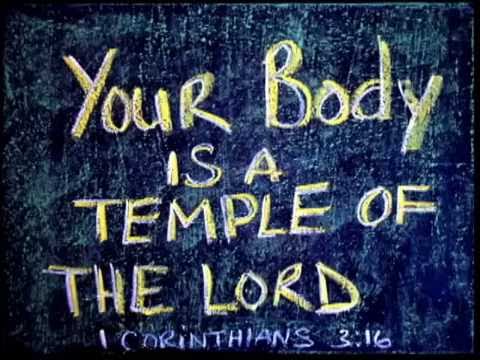God's temple is not place but personThroughout the year, the Southern New England Conference of the United Church of Christ produces the Daily Lectionary for use by churches. These are the suggested readings for Monday, March 8th: 1 Kings 6:1-4, 21-22; Psalm 84; and 1 Corinthians 3:10-23. I would encourage you to read these short selections as part of your Lenten practice.
As we enter a new week, the Daily Lectionary jumps from Mount Sinai to Solomon’s Temple. At Sinai, God had revealed the divine plans for His sanctuary, His tabernacle. It was an impermanent shrine that would travel with a nomadic people. Israel of the Exodus period is an amphictonic league, a people gathered around a shared shrine, but due to their wanderings that shrine needed to be mobile. It needed to be able to be set up and taken down repeatedly. When King David had secured his empire, he thought it appropriate to build Yahweh a more permanent shrine, a temple: “‘See now, I am living in a house of cedar, but the ark of God stays in a tent.’” (1 Samuel 7:2) The king’s prophet Nathan agrees immediately with this plan. It would seem the right thing to do. It would please God. That night, however, God speaks to His prophet and corrects his spiritual instincts: “‘Go and tell my servant David: Thus says the Lord: “Are you the one to build me a house to live in? I have not lived in a house since the day I brought up the people of Israel from Egypt to this day, but I have been moving about in a tent and a tabernacle. Wherever I have moved about among all the people of Israel, did I ever speak a word with any of the tribal leaders of Israel, whom I commanded to shepherd my people Israel, saying, ‘Why have you not built me a house of cedar?’”’” (2 Samuel 7:5-7) Yahweh continues to speak through the prophet Nathan and says, “The Lord will make you [David] a house.” (7:11) Not a vacation house in addition to David’s house of cedar. God will abide among His people not in a building, but through the House of David. In other words, God will abide among us not through a place, not even one drenched in gold, but through the house, the lineage, of David – not through place, but through person. This, obviously, leads to thoughts of the Messiah. God will dwell among us through Christ Jesus. Paul takes this an unexpected step further. He maintains the imagery that God tabernacles within us in Jesus Christ, the Messiah, but Paul then adds: “For God’s temple is holy, and you are that temple.” The universal foundation, however we practice our faith as Christians, whether Protestant, Catholic, Orthodox, whatever, is always going to be Christ, and on top of that foundation stands each and every one of us as believers. The Spirit dwells among us. God tabernacles within us. We are God’s holy temples. Lent leads us to Christ crucified, and Lent leads us, as well, to the revelation that God considers us worth even the life and death of His Son. Let us try to better appreciate the hope that God reveals. Let us strive to live up to what God sees as possible in and through us. Let us be temples not of “straw,” but temples worthy to tabernacle the holiness of God. If you’d like, here is the link to the Massachusetts Conference’s daily reading schedule: www.macucc.org/lectionary.
0 Comments
Leave a Reply. |
NewsFaith, love and chitchat. Categories
All
Archives
June 2024
Follow
|
|
SERVICE TIMES
Sunday 9:30-10:30am Children Sunday School 9:30-10:30am Nursery care available during worship DONATE Make a single or recurring contribution by clicking here |
FOLLOW
|

 RSS Feed
RSS Feed
